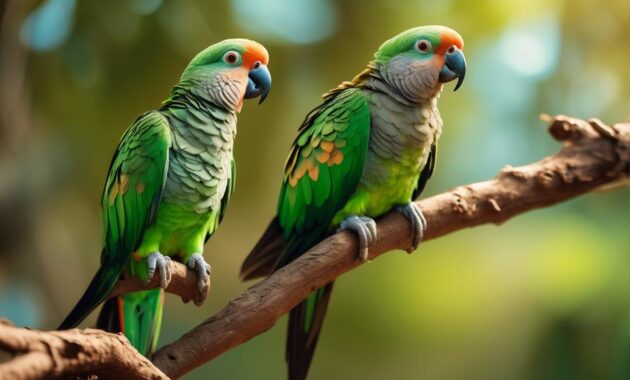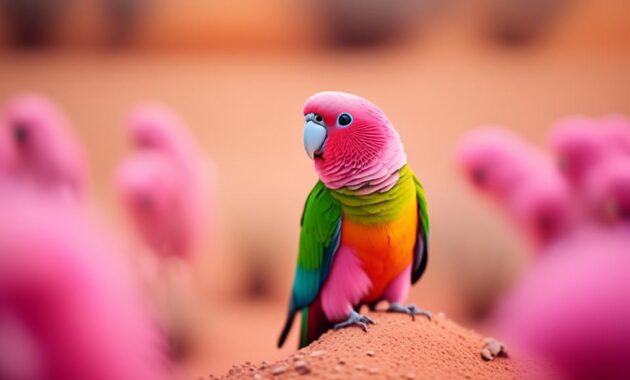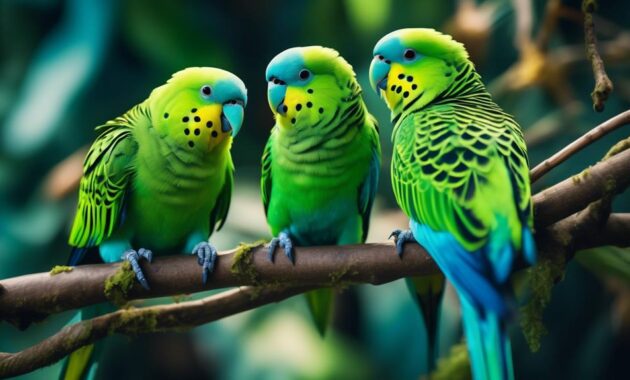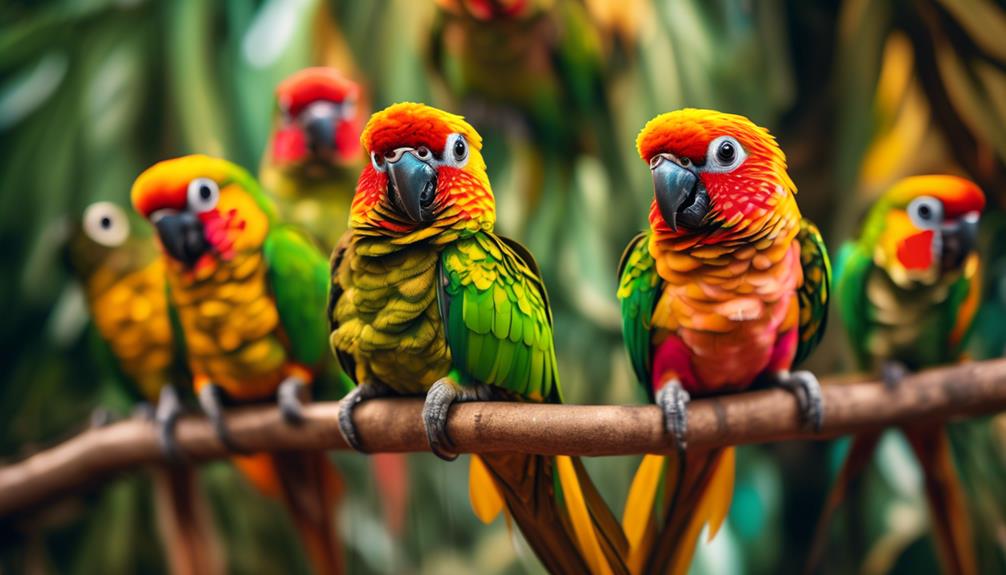
In the world of colorful and captivating parrots, the Brown Throated Conure is like a breath of fresh air. As the saying goes, ‘A little bird told me,’ and this little bird has a lot to say. From its vibrant green plumage to its playful and affectionate nature, there is no doubt that this conure breed stands out among the rest.
But there is more to this charming companion than meets the eye. So, buckle up and prepare to be amazed as we uncover the fascinating world of the Brown Throated Conure, where beauty, charm, and surprises await.
Key Takeaways
- The Brown Throated Conure is a vibrant and attractive bird with green feathers, a yellowish underside, and brownish green cheeks and throat.
- This species is known for its social and friendly nature, as well as its energetic and playful behavior. It also enjoys cuddling and goofing off.
- Native to several regions in South America, the Brown Throated Conure thrives in savannas, woodlands, scrub, and dense forests. It is adaptable and can fly and forage in open grassy savannas while finding shelter and nesting sites in wooded areas.
- To ensure their good health, these birds require a balanced diet of fruits, nectar, insects, seeds, and crops. They also need regular exercise, socializing, companionship, and mental stimulation. Taking care of their well-being includes providing an enriching environment. They can mimic sounds and words, although their vocabulary is limited compared to larger parrot species. They have a range of natural calls, which are generally quieter compared to other conure species.
Physical Characteristics
The Brown Throated Conure showcases a vibrant and charming appearance with its bright green feathers, yellowish underside, and brownish green cheeks and throat. Measuring around 10 inches in length, this small parrot species is known for its unique color patterns and striking appearance, especially when in flight. With its black beak and cute tiny feet, it stands out among other conure breeds.
In terms of behavior and personality, the Brown Throated Conure is social, friendly, sociable, and affectionate. It’s also energetic and tends to goof off, making it a sweet and entertaining companion.
Native to northern South America, Guianas, Venezuela, Colombia, Brazil, Leeward Antilles, Panama, and Costa Rica, this species thrives in savannas, woodlands, scrub, and dense forests.
When it comes to diet, they consume a varied diet consisting of fruits, nectar, insects, seeds, and crops in the wild. In captivity, they can be fed a suitable diet of commercial seed mix for conures or parakeets, supplemented with fresh fruits, vegetables, and occasional cooked food.
The Brown Throated Conure is surprisingly adaptable and durable, but can be prone to loneliness and boredom if not provided with proper care, balanced diet, exercise, and socializing.
In terms of vocalizations, they’re known to mimic sounds, make natural calls, and emit quiet chirps. Compared to other conure species like the Sun conure and Nanday conure, they’re less noisy, making them suitable for apartment living. However, their noise levels can increase if they feel neglected, bored, or lonesome.
Behavior and Personality
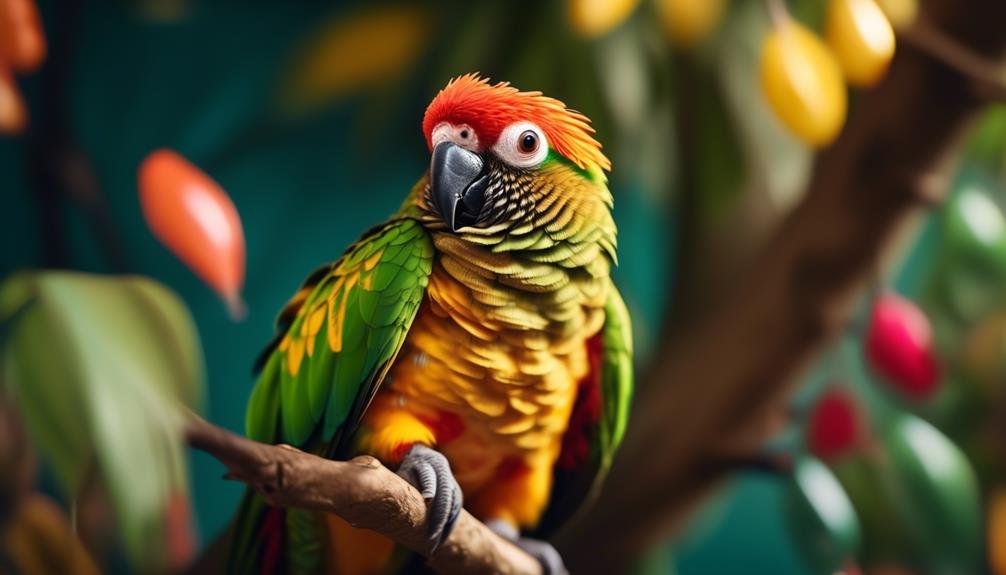
With its vibrant appearance and charming nature, the Brown Throated Conure captures the hearts of bird enthusiasts with its unique behavior and personality. These birds are known for their social interaction and friendly nature. They’re sociable and affectionate, often enjoying cuddles and scratches from their owners. Brown Throated Conures are also energetic and have a tendency to goof off, adding entertainment to their sweet personalities. They stand out among other conure breeds with their lively and active behavior.
In terms of care, they require a balanced diet, exercise, and socializing to ensure good health. Loneliness and boredom can be threats to their well-being. When it comes to vocalization, Brown Throated Conures are less noisy compared to other conure species, making them suitable for apartment living. Their cute voices and melodious natural calls add to their charming personality.
Habitat and Natural Region

Commonly found in northern South America, Guianas, Venezuela, Colombia, Brazil, Leeward Antilles, Panama, and Costa Rica, the Brown Throated Conure thrives in various habitats, including savannas, woodlands, scrub, and dense forests.
- Savannas: These open grassy areas provide ample space for the conure to fly and forage for food.
- Woodlands: The conure can be found in wooded areas, where it can find shelter and nesting sites in the trees.
- Scrub: The conure is well adapted to scrubby areas, where it can easily hide and find food.
- Dense forests: The conure is also found in dense forests, where it can find a variety of food sources and nesting spots.
The Brown Throated Conure is a versatile bird that can adapt to different environments, making it a successful species in its natural region.
Care and Health
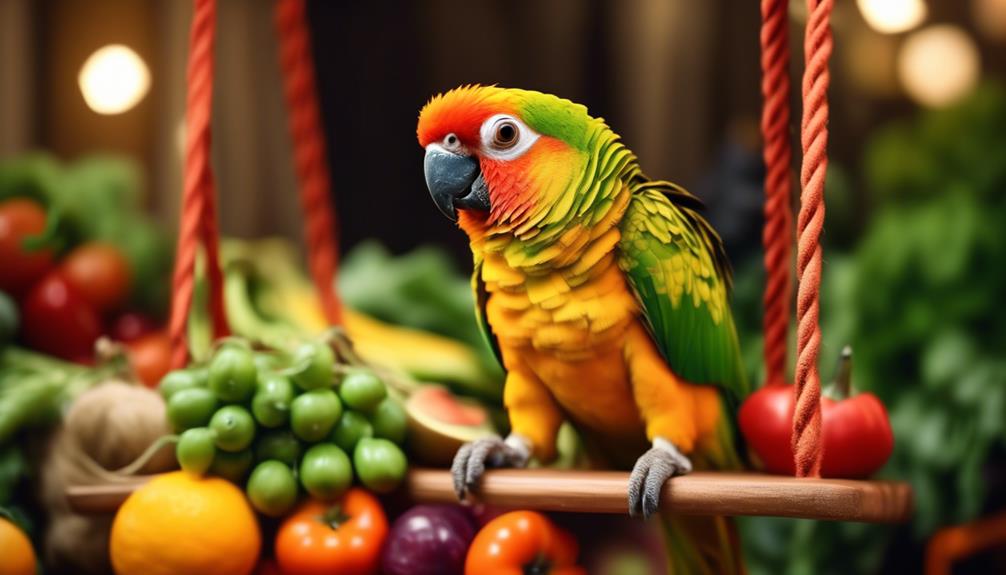
To ensure the well-being of a Brown Throated Conure, proper care and attention are essential. These vibrant and charming birds require a varied diet consisting of fruits, nectar, insects, seeds, and crops in the wild. In captivity, a suitable diet includes a commercial seed mix for conures or parakeets, supplemented with fresh fruits, vegetables, and occasional cooked food.
It’s important to provide a balanced diet, regular exercise, and plenty of socializing to ensure their good health. Despite their small size, Brown Throated Conures are surprisingly adaptable and durable. However, loneliness and boredom can be threats to their well-being.
Therefore, it’s crucial to provide them with companionship, mental stimulation, and an enriching environment to keep them happy and healthy.
Speech and Sounds
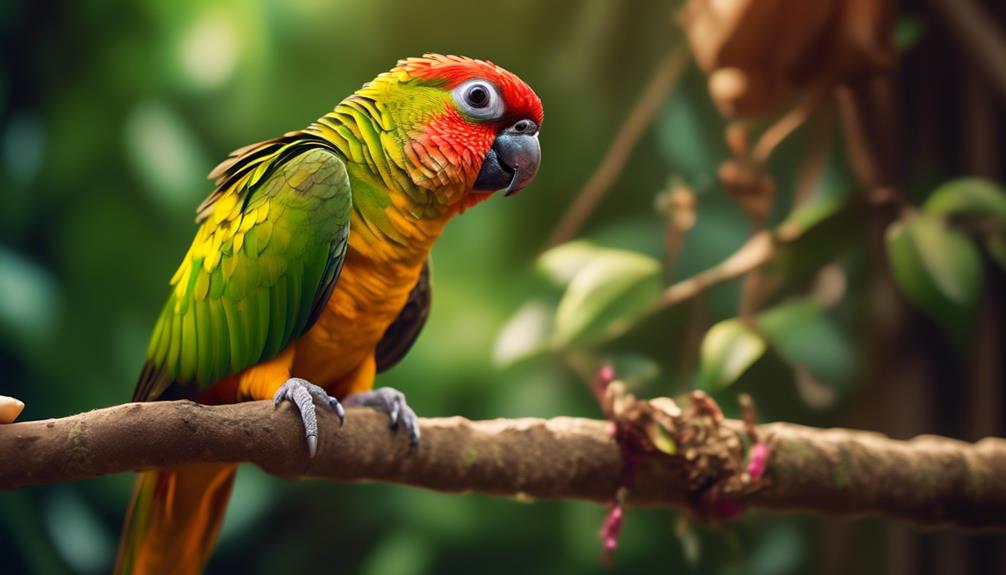
Brown Throated Conures are known for their cute voices and melodious natural calls. They may not be as noisy as their relatives, the Sun conure and Nanday conure, making them suitable for apartment living. However, when neglected, bored, or feeling lonely, their noise levels can increase.
Here are some key points about their speech and sounds:
- Vocal: Brown Throated Conures have the ability to mimic sounds and words, although their vocabulary may be limited compared to larger parrot species.
- Natural calls: They’ve a range of natural calls, including quiet chirps and whistles, which add a charming touch to their overall personality.
- Apartment-friendly: Their less noisy nature makes them a popular choice for those living in close quarters with neighbors.
Frequently Asked Questions
How Long Do Brown Throated Conures Live on Average?
Brown Throated Conures have an average lifespan of 15-20 years in captivity. With proper care, diet, socialization, and a stimulating environment, they can live a long and fulfilling life as vibrant and charming companions.
Are Brown Throated Conures Good Pets for Families With Children?
Yes, Brown Throated Conures are good pets for families with children. They are sociable, friendly, and enjoy social interaction. With their sweet and entertaining nature, they can bring joy and companionship to the whole family.
Can Brown Throated Conures Be Trained to Do Tricks or Speak?
Yes, brown throated conures can be trained to do tricks and speak. They are intelligent and quick learners. With consistent training and positive reinforcement, they can learn a variety of tricks and even mimic human speech.
What Are Some Common Health Issues That Brown Throated Conures May Experience?
Brown Throated Conures may experience common health issues such as feather plucking, respiratory infections, and vitamin deficiencies. Regular vet check-ups, a balanced diet, and a stimulating environment can help maintain their overall health and well-being.
How Do Brown Throated Conures Communicate With Each Other in the Wild?
Brown Throated Conures communicate with each other in the wild through a variety of vocalizations, including mimics, natural calls, and quiet chirps. They also use body language and visual displays to convey messages and establish social bonds.
What Makes the Brown Throated Conure Vibrant and Charming?
The brown-throated conure is known for its vibrant feathers and charming personality. Its striking plumage and lively demeanor make it a popular pet among bird enthusiasts. Despite their serene nature, the enigmatic orange-fronted conure also possesses a playful and endearing quality that captivates anyone who crosses their path.
Conclusion
In conclusion, the Brown Throated Conure is a vibrant and charming parrot species known for its striking coloration, playful nature, and social personality.
With their affectionate and sociable behavior, these birds thrive on interaction and companionship.
Proper care, including a balanced diet and regular mental stimulation, is essential to ensure their well-being.
With their melodious calls and apartment-friendly temperament, the Brown Throated Conure makes for a delightful companion for bird lovers.


